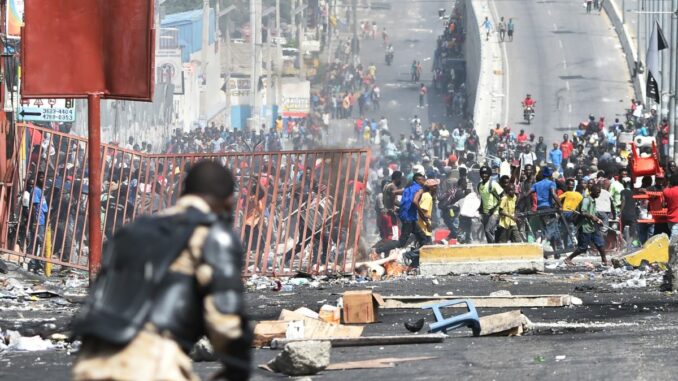
Just as Kenya and Haiti signed a security deal on Friday (1 March), paving the way for the deployment of 1.000 Kenyan police officers to the gang-ravaged Caribbean nation, the security situation in the capital Port-au-Prince escalated further as armed gang members overran the two biggest prisons and tried to seize control of Haiti’s main international airport.
The country’s government declared a 72-hour state of emergency starting from Sunday (3 March) night following an explosion of violence in which armed gangs attacked the two biggest prisons and freed thousands of inmates over the weekend. On Monday (4 March), heavily armed gangs also stormed Haiti’s main international airport in bid to seize its control. The Toussaint Louverture International Airport was closed when the attack occurred, with no planes operating and no passengers on site. The government said it is trying track down the escaped inmates, including from a penitentiary were the vast majority were in pre-trial detention, with some accused of slayings, kidnappings and other crimes.
With the increasingly powerful crime groups already estimated to control up to 80% of the capital, Haiti’s Prime Minister Ariel Henry traveled to Kenya last week to try to salvage support for a United Nations-backed multinational force to help stabilize his country. After signing the security deal in Nairobi, Kenyan President William Ruto said that after months of delays the agreement would “enable the fast-tracking” of the security mission. The mission, largely financed by the United States, has been on hold since January when a Kenyan court ruled the deployment illegal because Kenya and Haiti had not signed a formal reciprocal agreement. Three days after signing the bilateral accord in Kenya, the whereabouts of Haiti’s prime minister were not known Tuesday.
